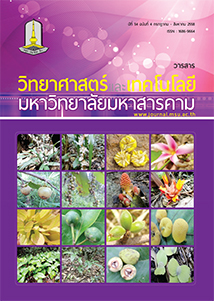Cyclooxygenase Inhibitors and Cancer Treatment
Main Article Content
Abstract
Cyclooxygenase1 and 2 (COX1 and COX2) catalyze the initial step in the formation of prostaglandins (PGs). PGs play critical roles in numerous biologic processes, including the regulation of immune function, kidney development, reproductive biology, and gastrointestinal integrity. The COX1 enzyme is produced constitutively in gastric mucosa, whereas COX2 is highly inducible in inflammation and cancer. Very recently their role in carcinogenesis has become more evident. They influence cancer cell proliferation, apoptosis, angiogenesis, and invasion, and play a key role in the production of carcinogens. Non-steroidal anti-inflammatory drugs (NSAIDs) can inhibit COX enzymes and they are the most widely used therapeutic agents in the treatment of pain, inflammation and fever. The effects of NSAIDs on tumor growth remain unclear, but are most likely to be multifocal. Possible targets include cancers of the colon, prostate, pancreas and liver. Most solid tumors express the COX2 protein, a target of NSAIDs. COX2 overexpression in tumors is considered a predictor of more advanced stage disease and of worse prognosis in a number of studies investigating solid malignancies. Therefore, NSAIDs are evaluated as anti-cancer drugs. NSAIDs inhibit proliferation, invasiveness of tumors, and angiogenesis and overcome apoptosis resistance in a COX2 dependent and independent manner. The objective of this review is to discuss the possible role of COX1 and 2 inhibitors as a target for anticancer drug development.
Article Details
Section
Original Articles


